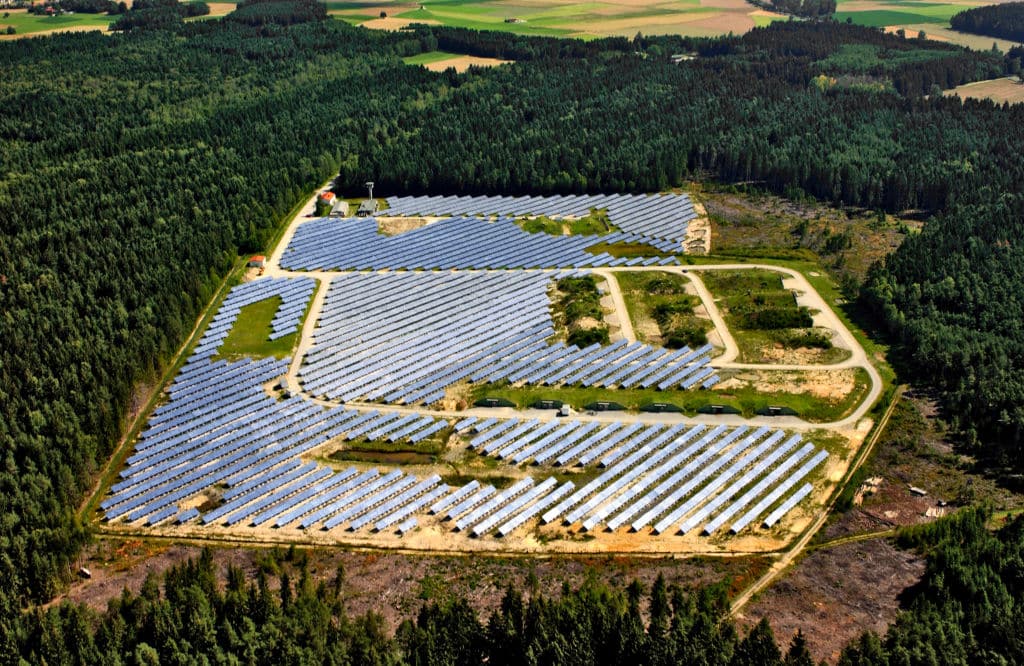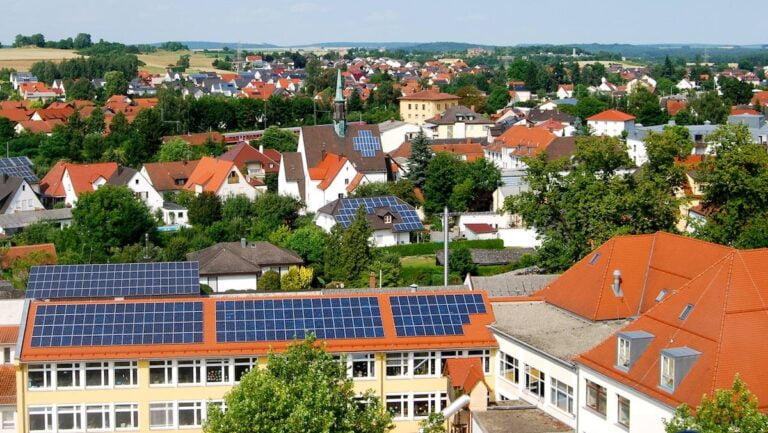Solar panels on the roof are already popular in Abensberg, Germany in 2015. Michael Robinson / Transatlantic Outreach Program / Facebook

Why you can trust us
Founded in 2005 as an Ohio-based environmental newspaper, EcoWatch is a digital platform dedicated to publishing quality, science-based content on environmental issues, causes, and solutions.
Russia’s invasion of Ukraine has led to an energy crisis that has increased the need for EU countries to find alternatives to oil and gas. A German town, Abensberg in Bavaria, is turning its attention to solar power, with the goal of becoming electricity independent by 2030, BBC News reported.
Engineer and Abensberg resident Lothar Stich has photovoltaic panels on his roof, garage and barn that he says can more than double his energy needs. Excess electricity is supplied to the community’s electrical grid.
“In the summer from April to September, we don’t need any external electricity, we make all our energy for ourselves. During the winter it is not possible because of the lack of sun,” said said Stich to BBC News. “It’s a great feeling when you have your own electricity. You’re driving a car powered by your own solar electricity. The sun doesn’t send a bill.”
When it’s cloudy or dark in Abensberg, the town’s 15,000 residents get their electricity from the grid.
“My goal is that by 2030, Abensberg will be able to produce 300% of the electricity it needs, with photovoltaic systems, biomass, wind and water power,” Abensberg Mayor Uwe Brandi told BBC news.
In the first half of 2022, commercial and residential solar system installations in Germany increased by 22 percent compared to the same timeframe last year, according to figures provided by the German Solar Association to CNN Business.
“Our business is booming because there’s a perfect storm of elements converging to really boost solar energy,” CEO of solar provider Smartflower Jim Gordon told CNN Business. “People are worried about energy security. An autocratic dictator can turn the valve on the gas pipe and turn off the energy, but no one can control the sun.”
Bavaria is also home to the Bavaria Solarpark, a photovoltaic (PV) energy plant. Built by Power Light, the plant opened in 2005 and was the largest PV plant in the world at the time, Renewable Technology reported. It is predicted that the Bavaria Solarpark will reduce more than 100,000 tons of carbon dioxide emissions within three decades.

Abensberg Mayor Brandi said that people are turning their attention to renewable sources in the face of the energy crisis, reports BBC News. In 2021, 55 percent of Germany’s gas will come from Russia, but this summer it fell to 35 percent and is still falling.
Germany continues to use nuclear power and reopens coal power plants, although its goal is to eliminate coal for a long time.
Currently, Abensberg does not have a way to store solar energy, said Green Party Town Councilor Magdalena Groll-Zieglmeier.
The transition to solar is “very important” to Groll-Zieglmeier’s husband, Richard, who is the environmental officer in Abensberg.
“The region, Germany, Europe, the whole world … we must go this way. We must save our planet, for the children,” he said, as reported by BBC News.
Subscribe to get exclusive updates in our daily newsletter!
By signing up, you agree to the Terms of Use & Privacy Policy & to receive electronic communications from EcoWatch Media Group, which may include marketing promotions, advertisements and sponsored content.
